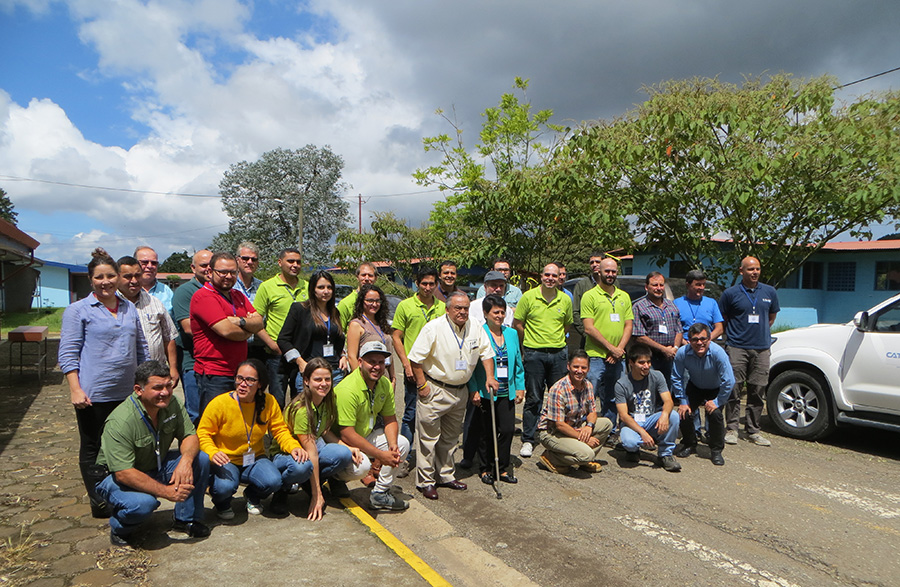Capacity Building
Ammonia Training, CATIE - October, 2017
- A brief introduction to SusCoRiDa by Dave Chadwick
- An Introduction to the School of Environment, Natural Resources and Geography
- An Introduction to Rothamsted Research
- Ammonia emissions from agriculture: impacts, sources and mitigation by Tom Misselbrook
- Measurement techniques for ammonia emissions from agricultural sources by Tom Misselbrook
- Flux calculations using the IHF mass balance method with shuttles by Tom Misselbrook
- Making measurements of nitrogen and phosphorus leaching by Dave Chadwick, Andre Mazzettoand Tom Misselbrook
- An Inventory of Mitigation Methods and Guide to their Effects on Diffuse Water Pollution, Greenhouse Gas Emissions and Ammonia Emissions from Agriculture by Newell Price, J.P., Harris, D., Taylor, M., Williams, J.R., Anthony, S.G., Duethmann, D., Gooday, R.D., Lord, E.I. and Chambers, B.J. (ADAS), and Chadwick, D.R. and Misselbrook, T.H. (Rothamsted Research, North Wyke)
LCA Training
In order to properly calculate the carbon footprint of a dairy farm, it is essential to know and analyse the carbon cycle. Currently, the design of the low greenhouse gas emissions strategies for livestock is an opportunity to access policies for more sustainable, efficient and climatically friendly livestock. In this context, Bangor University and CATIE developed the workshop “Life Cycle Analysis of Livestock Farms” from September 12 to 13 in Costa Rica.
The workshop had the participation of more than 30 people, including producers (Dos Pinos), academics (National University of Costa Rica-UNA, University of Costa Rica-UCR), technicians (National Institute of Agricultural Technology-INTA, National Institute of Agricultural Research-INIA) and decision makers (Ministry of Agriculture and Livestock-MAG, National Chamber of Milk Producers, Corporación Ganadera-CORFOGA) working on Costa Rican livestock sector, within the framework of the SusCoRiDa project.
The experts in charge of the workshop were Dr. David Styles, Dr. André Mazzetto and MSc. Ibidhi Ridha. The main topics addressed in the form of lectures and practical exercises were:
- Methane emissions from the enteric fermentation
- Emissions of methane and nitrous oxide from manure management
- Emissions from the manufacture and application of fertilizers
- Emissions from livestock feed production and carbon sequestration

